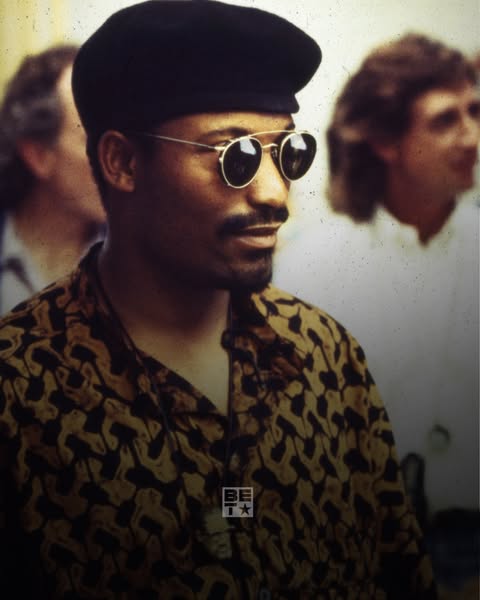The world of film and storytelling lost a true icon with the passing of John Singleton, a groundbreaking American director, screenwriter, and producer whose artistry, authenticity, and fearless voice reshaped the cultural fabric of Hollywood and American cinema. Singleton passed away on April 28, 2019, at the age of 51, following complications from a stroke. Though gone far too soon, his legacy endures through a body of work that spoke truth to power, gave voice to the unheard, and brought urgent social realities to the big screen with a rare blend of rawness and elegance.
A Daring Debut That Shook the Industry
Born on January 6, 1968, in South Central Los Angeles, John Singleton rose from humble beginnings to become one of the most influential filmmakers of his generation. A graduate of the USC School of Cinematic Arts, Singleton’s path to greatness was defined by his deep-rooted connection to his community and a powerful desire to tell authentic stories about Black life in America — stories too often overlooked or misrepresented in mainstream media.
At the age of just 23, Singleton wrote and directed “Boyz n the Hood” (1991), a searing, semi-autobiographical coming-of-age drama set in South Central LA. The film, starring Cuba Gooding Jr., Ice Cube, and Angela Bassett, was a cultural revelation. It pulled no punches in its portrayal of systemic violence, poverty, and hope amidst the chaos — and audiences and critics took notice. The film not only received widespread critical acclaim but also earned Singleton two Academy Award nominations for Best Director and Best Original Screenplay, making him the youngest person and the first African-American ever nominated for Best Director.
“Boyz n the Hood” wasn’t just a film — it was a movement, opening doors for a generation of filmmakers and shining a light on the lived experiences of many whose stories had been silenced.
A Career Defined by Range and Authenticity
While “Boyz n the Hood” put Singleton on the map, his filmography is rich and varied, touching on themes of identity, masculinity, family, racial injustice, and resilience. Films such as:
- “Poetic Justice” (1993), starring Janet Jackson and Tupac Shakur, blended romance and poetry with the struggles of grief and survival.
- “Higher Learning” (1995) delved into the racial and ideological tensions at an American university, tackling issues like white supremacy, sexism, and gun violence.
- “Rosewood” (1997) powerfully recounted the harrowing story of the 1923 Rosewood massacre in Florida — a true story of racial violence long erased from history books.
- “Baby Boy” (2001), a spiritual successor to his debut, was a raw and intimate look at modern Black manhood, starring Tyrese Gibson and Taraji P. Henson.
His later works included action-driven successes like “Shaft” (2000) and “2 Fast 2 Furious” (2003), demonstrating Singleton’s ability to blend socially conscious themes with mainstream appeal. Even in big-budget arenas, he never lost his voice or his mission: to make Black lives visible, complex, and fully human.
Champion of Black Voices
Beyond his own films, John Singleton was a passionate advocate for elevating new Black storytellers and artists in the industry. He mentored countless emerging filmmakers and was vocal about the lack of representation and equity in Hollywood, often using his platform to push for change behind the scenes.
He later directed and produced episodes of acclaimed television shows like “Empire”, “The People v. O.J. Simpson: American Crime Story”, and co-created the FX drama “Snowfall”, a gripping series about the early days of the crack epidemic in 1980s Los Angeles — another example of his unwavering commitment to unearthing buried truths and pushing social discourse forward through art.
A Lasting Legacy
John Singleton’s passing was a tremendous loss, not only for the film world but for all those who saw themselves in his stories — the marginalized, the misunderstood, the unseen. His work shattered stereotypes and opened the door for Black directors, writers, and actors to tell stories from their own perspectives. From Ryan Coogler to Ava DuVernay, his influence can be seen in the new wave of filmmakers he inspired — creators who continue to challenge the status quo and bring fresh voices to the screen.
Singleton once said: “I really feel that if I don’t tell my stories, who will?” That self-awareness, that sense of urgency, is what made his work vital and timeless.
Final Thoughts
John Singleton was more than a filmmaker — he was a cultural force, a truth-teller, and a visionary who harnessed the power of cinema to stir hearts, spark dialogue, and demand justice. His films were love letters and warning signs. They were mirrors for the overlooked and megaphones for the silenced.
As the world continues to grapple with many of the issues Singleton illuminated in his work — from police brutality to systemic racism to economic injustice — his voice remains as necessary as ever. His films endure not just as works of art, but as tools of education, empathy, and empowerment.
Rest in power, John Singleton. Your lens changed the world, and your legacy lives on — reel by reel, scene by scene, truth by truth.

Leave a Reply